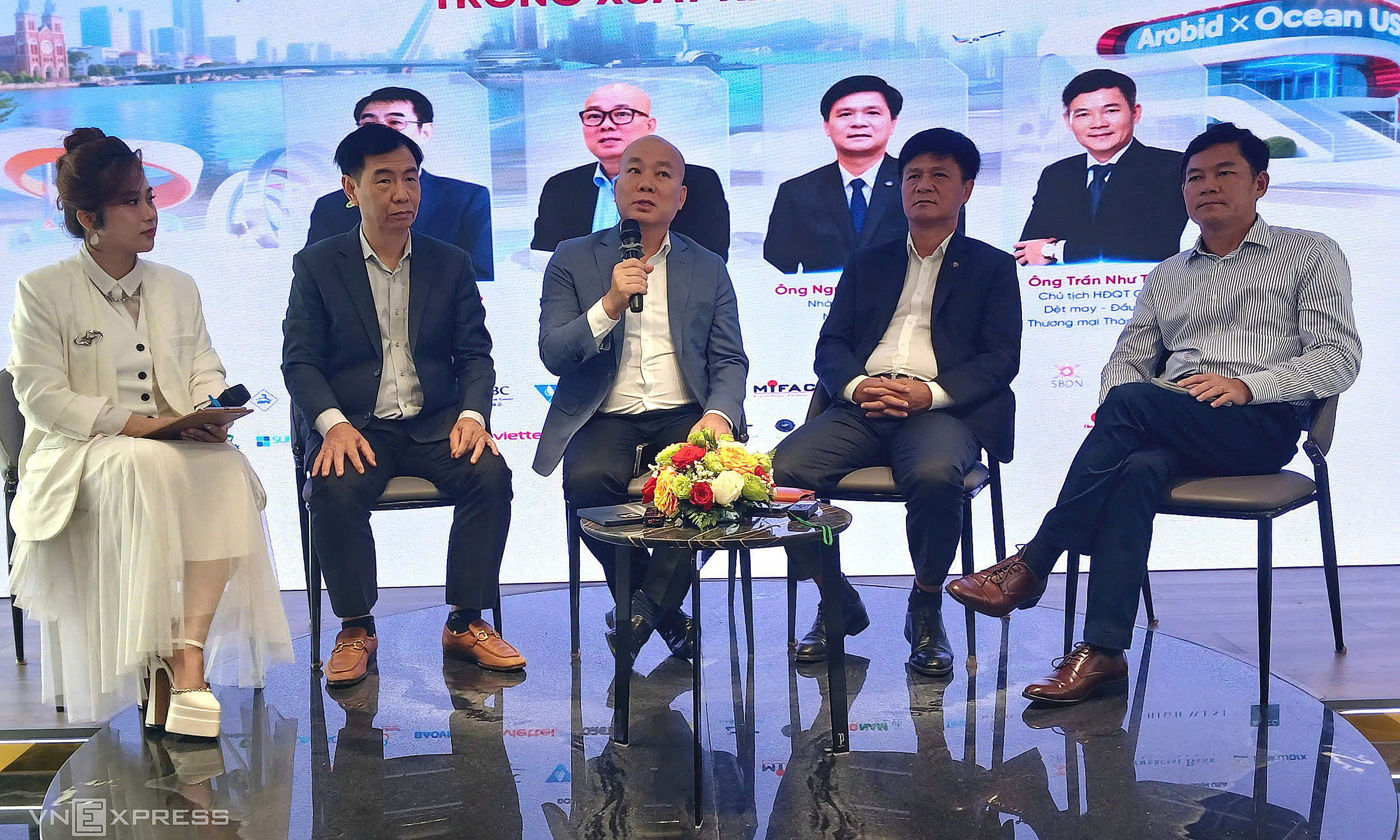This information was shared by Vu Ba Phu, Director General of the Vietnam Trade Promotion Agency (Vietrade), along with businesses and industry associations, during a seminar titled "Current situation and challenges in exporting goods to the US" held on 8/8 in Ho Chi Minh City.
Phu stated that the US has long been considered a "gold mine" for global trade, with purchasing power ranging from clothing priced at 1 USD to several hundred USD per item, and fruits from common varieties to premium ones.
According to Phu, even if import taxes into the US increase to 20% or 40%, Vietnamese goods must still find their way in. The key is finding the most profitable export strategies. Under new regulations, goods originating in Vietnam will be subject to a 20% tax, while goods with "borrowed origin" will face a 40% tax.
Exports to the US surged in the first six months of the year, leading to large inventories, a scenario similar to the post-Covid-19 period. Data from the General Statistics Office shows that in the past seven months, Vietnam's trade surplus with the US reached nearly 75 billion USD, a 28.6% increase compared to the same period last year. However, Phu predicts that from the second half of 2025, possibly extending into the first half of 2026, many sectors will struggle to maintain the 28% growth rate seen previously.
This trend is also evident in textiles, a key export sector. Tran Nhu Tung, Chairman of the Board of Directors of Thanh Cong Textile Garment Investment Trading Joint Stock Company (TCM) and Vice President of the Vietnam Textile and Apparel Association (VITAS), said that businesses rushed orders before the US imposed countervailing duties, resulting in an increase of over 17% in export turnover to the US in the first six months. However, this push could lead to a decline in orders in Q3 due to large inventories and customers waiting for clearer policies.
Tung hopes that if taxes stabilize at 20%, orders will return from Q4 onwards. He emphasized that the industry still faces four challenges: "green" standards increasing costs, fierce competition, rules of origin dependent on Chinese materials, and the pressure of digital investment with ERP costs reaching 2 million USD.
 |
Vu Ba Phu, Director General of Vietrade, with businesses at the seminar held on 8/8 in Ho Chi Minh City. Photo: Thi Ha |
Vu Ba Phu, Director General of Vietrade, with businesses at the seminar held on 8/8 in Ho Chi Minh City. Photo: Thi Ha
The wood industry also faces both opportunities and challenges. A 20% tax is still advantageous compared to China (50-55%) or India (50%), but the 40% rate for transshipped goods poses a significant risk due to the continued reliance on materials imported from China. Dien Quang Hiep, Chairman of the Binh Duong Furniture Association (BIFA), requested clear guidance on origin to avoid complications and recommended reasonable pricing from the outset, instead of being forced into deep discounts when negotiating with American customers.
Regarding agricultural products, in addition to the pressure of a 20% tax on goods exported to the US, businesses face increased domestic costs due to a 5% tax on farmers and complicated VAT refund procedures. Nguyen Manh Hung, Chairman of Nafoods Group, noted that Chinese traders buy directly at the source but do not pay taxes transparently, putting Vietnamese businesses at a disadvantage. The solution, according to him, is to reduce reliance on imported materials, build brands, open factories in the US and Europe, and simplify CO issuance procedures to distinguish between the 20% and 40% tax rates.
Given this context, Phu believes that the long-term strategy must be to develop supporting industries to reduce dependence on imported components and materials, increase localization rates, and enhance the ability to meet international standards for environment, labor, and origin. Specifically, the agricultural sector needs to shift strongly towards deep processing, tighten documentation, and ensure transparency in export records.
He also highlighted the role of B2B platforms like VietnamUSA.Arobid.com – a newly launched solution in the context of Vietnamese businesses facing new tax rates. This platform helps connect directly with US customers through digitalized trade, transparent origin, and compliance with ESG standards.
Tran Van Chin, Chairman of Arobid, hopes this will become a comprehensive connecting "station", supporting businesses in overcoming three key barriers: digitalization, capital, and ESG – the foundation for sustainable exports to the US.
Thi Ha












